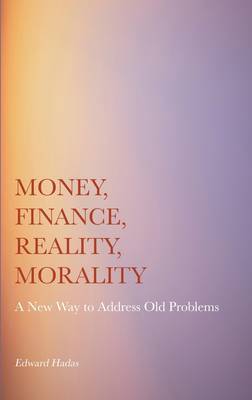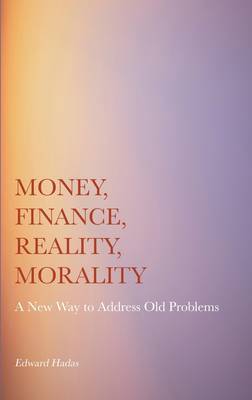
- Retrait gratuit dans votre magasin Club
- 7.000.000 titres dans notre catalogue
- Payer en toute sécurité
- Toujours un magasin près de chez vous
- Retrait gratuit dans votre magasin Club
- 7.000.0000 titres dans notre catalogue
- Payer en toute sécurité
- Toujours un magasin près de chez vous
Money, Finance, Reality, Morality
A New Way to Address Old Problems
Edward HadasDescription
Conventional explanations of the nature of money are weighed down by bad ideas and irrelevant historical evidence. The standard theory of finance is hampered by the lack of both sociological and ethical contextualization, and by sloppy thinking about numbers and time. Money, Finance, Reality, Morality addresses those weaknesses with truly novel models of how the economy, money, and finance actually work.
The book analyses the perception of money as an economic tool (as compared to a symbolic and sociological object) as a highly functional quantitative token that assigns numerical values to the inherently unmeasurable economic activities of labour and consumption. It looks at finance as an often inferior solution to economic problems and a tool for helping the poor support the rich. And it explains how the tolerance of greed makes the money-finance system the weakest link in modern economies.
Money, Finance, Reality, Morality, written without jargon or maths, will be of interest to students, teachers and practitioners in economics and finance, government and politics, religion, and philosophy and sociology.
Spécifications
Parties prenantes
- Auteur(s) :
- Editeur:
Contenu
- Nombre de pages :
- 460
- Langue:
- Anglais
Caractéristiques
- EAN:
- 9781804410264
- Date de parution :
- 09-09-22
- Format:
- Livre relié
- Format numérique:
- Genaaid
- Dimensions :
- 156 mm x 234 mm
- Poids :
- 879 g

Les avis
Nous publions uniquement les avis qui respectent les conditions requises. Consultez nos conditions pour les avis.






